LIST OF CONTRIBUTORS
Speakers
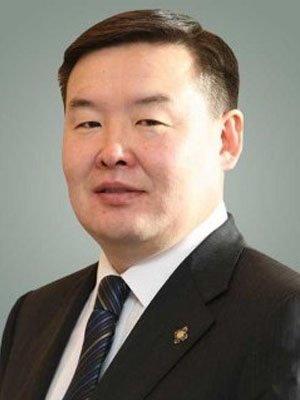
In 2014–2015 and 2016, Gombojav Zandanshatar was a visiting scholar at the Center on Democracy, Development and the Rule of Law at Stanford University in California. He was inspired by the concept of deliberative polling developed by the center's director, Prof. James Fishkin, and translated his book on the topic, When the People Speak, into Mongolian.
In 2017, the country officially adopted deliberative polling as a condition for constitutional changes. He is one of the founders of the Deliberative democracy in Mongolia initiative and frequently presents on this topic.

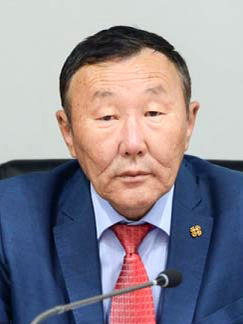
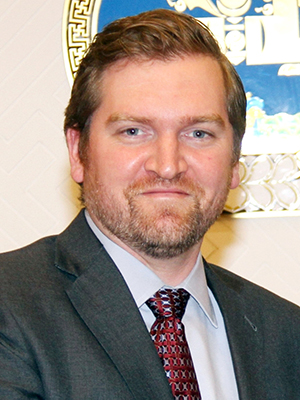
The Asia Foundation has played a unique role in the country’s development since 1990 as the first non-profit organization to be invited into Mongolia. Today, Koenig leads a dynamic team in Ulaanbaatar working effectively with government, civil society, and the private sector in Mongolia to strengthen democratic governance and build a foundation for long-term economic prosperity.
Koenig brings more than a decade of experience in governance issues across Asia. Most recently, he served as the deputy director and Urban Governance specialist for The Asia Foundation’s Program Specialists Group working out of the Foundation’s office in Thailand, where he designed urban governance programming in countries including Mongolia, Cambodia, Nepal, and Myanmar.
Koenig has worked at The Asia Foundation in a full-time capacity since 2010, coming from the International Security Sector Advisory Team (ISSAT) in Geneva, Switzerland. At the Foundation, the first focused on program design relating to urban governance, community policing, anti-corruption, and improving public policy processes in a range of countries including Nepal, Afghanistan, Timor-Leste, and Mongolia. In 2013, Koenig became the Foundation’s assistant director for Program Strategy, Innovation and Learning, where he played a leading role in the Foundation’s country strategic planning process, supported the Foundation’s strategic partnership with the Australian government, and implemented programs using innovative adaptive management techniques and political economy strategies to support public policy processes.
Education: Koenig holds a bachelor’s degree in Political Science from the Johns Hopkins University and a master’s degree with a concentration in Law and Development from the Fletcher School of Law and Diplomacy at Tufts University.
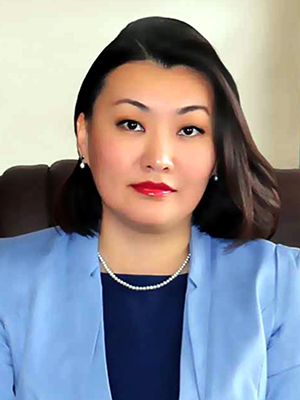
She has rich experiences in analyzing and developing strategies and programs. She has also 8 years work experience in the private sector, to be exactly in the Insurance industry.
Her master degree in Political science, Sociology, and History was held at the University of Hannover, Germany (2005) and Master in Business Administration in Mongolia in 2017. She promoted Public Administration Management at the National Academy of Governance in Mongolia. She completed courses on Leadership and Management, and Negotiations in International Development, at the International Law Institute of Georgetown University.
Mrs. Ariunzaya Ayush has extensive experiences in sustainable development, regional and international cooperation, being a member of High-level Group for Partnership, Coordination and Capacity-Building for Statistics for the 2030 Agenda for Sustainable Development, High Level Group for Modernization of Official Statistics and co-facilitator of the Subgroup Operationalization of the Task Team on New Approaches to Capacity Development and a member of PARIS21 Steering Committee, President of ANCSDAAP in 2018-2020.
Married, mother of three children.
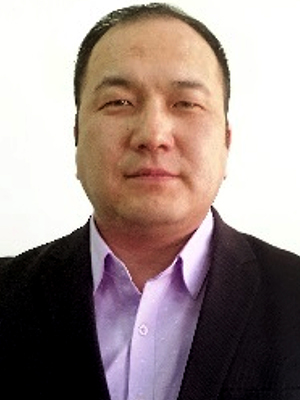
Sep 2009- 2018; Ph.D. candidate, National University of Mongolia, Ulaanbaatar, Mongolia
http://www.num.edu.mn/
Oct 2001- June 2002; Master of Social Science, Philosophy, Sociology and Law at Mongolian Academy of Sciences, Ulaanbaatar, Mongolia.
Sep 1995- June 1999; Bachelor, Private Institute of Social and Economic research for XXI century
WORK EXPERIENCE
Feb 2018-presents Chairman, Statistical Department of Capital City, Ulaanbaatar, Mongolia
Sep 2016- Feb 2018 Vice Director, Institute of Research of the Social Protection and Labour at Ministry of Population Development and Social Protection, Ulaanbaatar, Mongolia
2014-Sep 2016 Deputy Director, Strategy Academy, Ulaanbaatar, Mongolia
Dec 2004-Nov 2014 Researcher and senior researcher, Strategy Academy, Ulaanbaatar, Mongolia.
1999-Dec 2004 Teacher-Researcher, Private Institute of Social and Economic research for XXI century, Ulaanbaatar, Mongolia
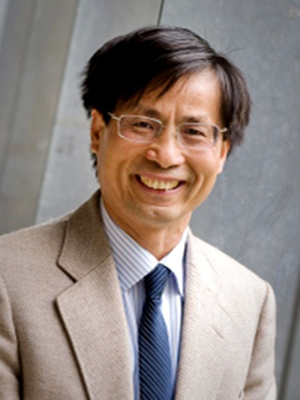
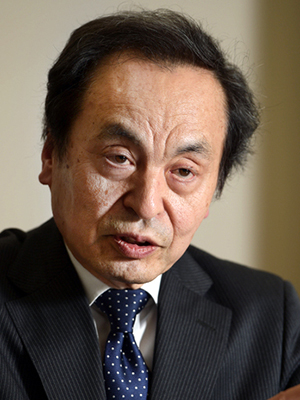
Visiting Fellowships were at Yale University (1974-76), The Australian National University (1983-4), Harvard University (1998-99), and Visiting Professor at the University of Essex (1984).
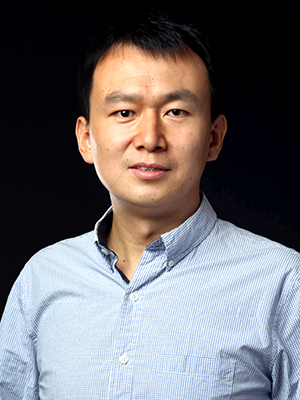
1994-1998, Law School in Nankai University, Tianjin City, Undergraduate in International Politics.
1998-2004, School of International Relations and Public Affairs in Fudan University, Shanghai City, and Ph.D. in Political Theories (Chinese Politics and Government).
2004-2011 Lecturer in Dept. of Government Management, School of Public Management in Zhejiang University, Hangzhou City.
2005.1-2008.1 Postdoctoral Research in School of Economics, Zhejiang University in Hangzhou City.
2006.11-2007.11 Vice-Mayor of Wenling City, Zhejiang Province, China
2009.01 Assistant Director of Social Survey and Research Centre of Zhejiang University.
2011.04 Associated Professor In School of International Relations and Public Affairs at Fudan University.
2012.4 Director, Centre of Comparative Research of Urban Governance of Fudan University
2015.3-2016.3 Visiting Scholar to Stanford University on sabbatical from the current position
Research Fields:
Urban governance and Local Innovation; Labour Research and Social Stratification (Social Organization Transformation); Deliberative Democracy and Social Survey
Courses:
Comparative Political System Analysis; the Principles of Modern Politics; Local Politics and Local Governance (for Undergraduate Students)
Special Issues of Local Politics and Local Governance (For Postgraduate Students)
Articles (2010-2014):
2017年
Han Fuguo, Handbook of Multiple Deliberative Democracies in Policy-making: Practicing Deliberative Democracy in China, Fudan University Publishing House, 2017.
HAN Fuguo, Siu Alice, Practicing Process of Deliberative Democracy and its Effectiveness Assessment: Analysis of Institutional Change of Participatory Budget of Wenling City, Journal of Xian Jiaotong University (Social Sciences), 2017 (5) :59-70.
2014/
Han Fuguo, Song Daolei, “Qionggen” and “Fanshen”: Study on the Reproduction Mechanism of Rural Elite after the Second Rural Reform in China, Journal of Zhejiang University (Social Sciences), 2014(1).
2013年
Han Fuguo, Consultative Democracy as an Embedded Resource of Governance: the Rule of Government and Society in Modern City, Journal of Fudan University (Social Sciences), 2013(3): 156-164.
Han Fuguo. “Open Party Reform”: Based on the Interaction of Mass-democracy and Deliberative Democracy, Journal of Zhejiang Public Administration College, 2013(4): 31-38.
Han Fuguo, Sun Ying, Xu Xiaodan, The Construction of Urban Public Security under the Perspective of Floating Population: An Analysis of demand of New Industrial Workers for the Urban Open Governance, Journal of Gansu Public Administration College, 2013(1):25-33.
Han Fuguo, Reconstruction of the Top-level for Modern Urban Governance in China, Journal of Exploration and Free Views, 2013(11):21-24.
2012年
Han Fuguo, Takeover Procedure of Shenyang City: the Analysis on the CCP`s Urban Management Ability from the Armed Struggle with Kuomingdang, Journal of Hangzhou Public Administration College, 2012(4):19-25.
Han Fuguo, Political Consultancy and its Institutions in CCP`s Regime Structure, Journal of Zhejiang Public Administration College, 2012(3): 70-75.
Han Fuguo, Correlation between Regional Economic Increase and Local Government Innovations: an Inter-case Analysis of Difference of Chinese Inter-governments, Journal of Zhejiang University (Social Sciences), 2012(2): 161-177.
2011年
Lang Youxing, Han Fuguo, “Deliberative and Local Governance: a review of International Conference on the Experience of Wenling City in Zhejiang Province, International Academic Developments, 2011(4):5-7.
2010年
Han Fuguo, Political Space for Deliberative Democracy in China: an analysis of Party-interaction during 1953-1956, Contemporary World and Socialism, 2010(5):120-124.
Other Papers
Han Fuguo, Conflict Forecast System in Chinese Community and Community Information Network, Journal of Theory and Exploration, 2001(5).
Han Fuguo, Cyber Democracy of one Case Study in Shanghai: Cyber Community and Opening Governance, Lin Shangli eds. Case Study: Community Democracy and Governance, Social Sciences Literature Press, 2003.
Han Fuguo, Political Culture Structure under Conflict between Institution-Axes and Ethic-Axes: Chinese Construction Orientation in Comparison, Fudan Political Review, 2003(2).
Han Fuguo, Chinese Space for Deliberative Democracy: one Critique on the Chinese Grass-root Democracy Practice, An International Conference on Deliberative Democracy and Chinese Practice of Participatory and Deliberative Institutions, November 18-21,2004,Zhejiang University, Hangzhou. (He Baogang and Chen Shengyong eds., Development of Deliberative Democracy, Social Sciences Literature Press,2006.
Han Fuguo, From Single-centre Network Governance to Multi-centre Governance: the Meaning of Private Economy on Chinese Social Governance Structure, The International Symposium on the Development of the Non-state Sector, Local Governance and Sustainable Development in China,Hangzhou, China, June 24-25, 2006,Co-organized by Department of Political Science, ZJU; China Policy Institute, Nottingham University; Centre for Local Government and Social Governance, ZJU. (Yu Xunda eds. Market Economy and Government Management, Zhejiang University Press, 2006.
Avner Greif, Han Fuguo: Self-enforcing Institutions: Comparative and Historical Institutional Analysis, (Translated), Journal of Comparative Economic & Social Systems, 2008(2-3).
Han Fuguo, Qu Shuaiwei, Structure, Organization, and Institution: Interdisciplinary Research of Chinese Social Transformation, Journal of Comparative Economic & Social Systems, 2008 (5), 72-79.
Han Fuguo, “Information Communication and Trust Establishment: Dual-Agent Functions of Organizations in Chinese Private Economic Institutional Game”, “Peaceful Development and Deepening Integration in the Greater China Region”, June 11-12, 2009, by International Conference by ACPS
Han Fuguo “Innovation Sustainability and Chinese Local Government Reform: Discussion on Some Key Propositions”, International Conference of “China’s Rise and its Impact on Asia”, March 20-21, Louisville, by USCS, ACPSS, and Centre for Asian Democracy, University of Louisville, Kentucky, United States of American.
Books:
Han Fuguo, Organizational Dual-Agent Functions of ACFIC in Chinese Institutional Changes of Private Economy, Beijing Economic Science Press, 2006.
Han Fuguo, “Open Party Reform”: the Interaction of Mass-democracy and Deliberative Democracy in Gumei Community of Shanghai City, Shanghai People press, 2013.
3.Han Fuguo, Luo Xiaojun, Lin Rongri, New Industrial Workers and Chinese Labour Union: Socialized Model of Workers` Right Safeguard in Yiwu Labour Union, Shanghai People press, 2008.
Contemporary Works:
Focused on the Deliberative Democracy Research in China, especially the Deliberative Polling practice in Shanghai City, Nanjing City, and Zhejiang Province.
Focused on the Local Governance and Local Innovations in China and review their political results in China`s future development.
Survey about the Chinese Immigrant Workers in 2014 since we have collected the social survey since 2006.
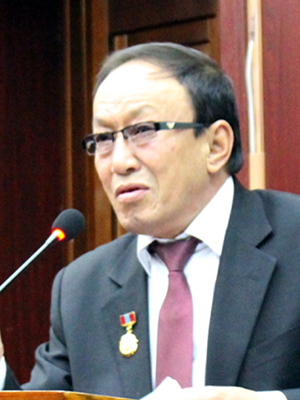
Professional trainings: 1985-1986, Moscow State University, 1995-1996, Academy of Sciences, Russian Federation, 1997, Summer University, Almaty, Kazakhstan- 2000-2006
Professional Experience: 1981-1988, Lecturer and Head of Department of Social Science, Pedagogical University in Khovd, Mongolia- 1991-2011, Head, Department of Political Science, School of Social Sciences, National University of Mongolia, 2011-2013, Professor, Department of Political Science, NUM, 2013, Dean, Division of Social Science, NUM, 2016 Professor, Department of Political Science, NUM
Field of interests: Comparative Politics, Domestic Politics, Political
Psychology, Political development, and democracy
Professional membership: Since 1992 - Member of Academic Council of School of Social Sciences, NUM. Since 1995- Member of Academic Council, NUM. Since 1999- Director of “Alternative” Centre for Political Studies, NUM. Since 2000- Head, Academic Secretary, Member of Doctoral Defence Council in Political Science. 2005-2010- Secretary, Mongolian Political Science Association. 2006- Member of International Political Science Association. 2009-2013- Member, Policy Consul to the President of Mongolia. Since 2010- President, Mongolian Political Science Association
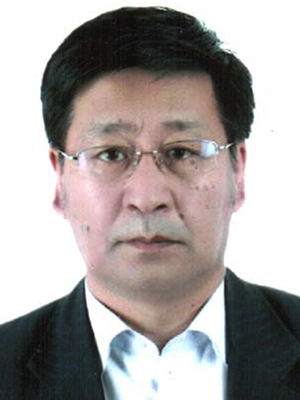
Board member of the Political Science Association of Mongolia,
Member of Alternative Research Center.
His research areas include as of political system, political institutions, government policies, public administration, and local governance. He has written and published over 40 research articles, two textbooks, and brochures for research and training purpose. In 2003-2016, he has worked as a team member and a project manager in a dozen of research projects financed by and organized from National University of Mongolia, IRI, Soros Foundation, Asian Development Bank and The Government of Mongolia.
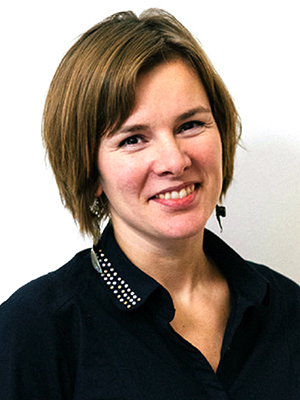
Since 2016 Teele has been leading online and offline advocacy efforts to build a critical mass of users for the citizen's initiatives platform known as rahvaalgatus.ee The participation platform is the direct result from the Estonian Open Government Partnership action plan 2014–2016, serving as the digital infrastructure for the citizen right to collectively address the Parliament of Estonia. Teele often advises the public sector, political parties, and civic organizations in Estonia and beyond on co-creation, open governance and systemic change.
Teele is an urbanist and directed the urban issues think-and-do-tank Estonian Urban Lab from 2010 to 2015. She is a city maker in Tallinn, focusing on public space and the role of local governance in protecting the public interest.
Teele has been listed as the New Europe 100 nominee of Eastern and Central Europe innovators (nominated by Google, Financial Times, think-and-do-tank Res Publica and Visegrad Fund in 2014); awarded as the person of the year with a mission (nominated by Estonian non-government organisations in 2016) and for the societal work with public space in Tallinn (Estonian Architecture Annual Awards in 2016).
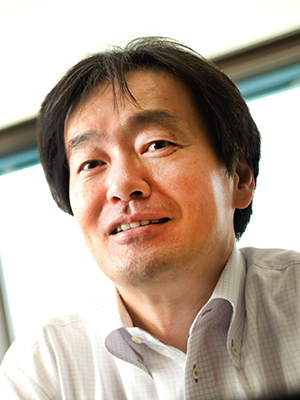
Professor at School of Environment and Society of Tokyo Institute of Technology
Research interest is in Behavioural Aspect of collective will formation and institutional design
President of the Japan Association for Planning and Public Management from 2018.
He conducted two Deliberative Polls in Japan, one of which uses on video conference system.
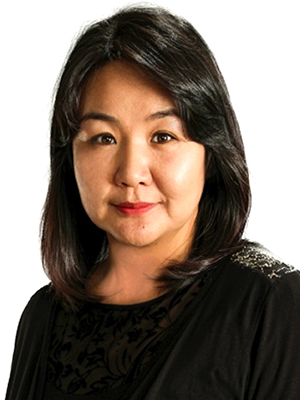
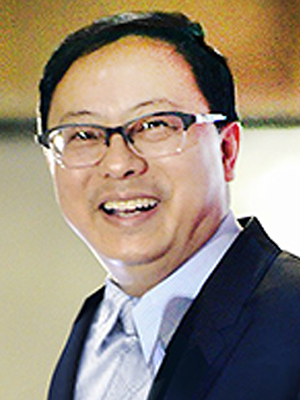
Angus is also the co-founding member and incumbent chair of the Asia-Pacific Internet Research Alliance (APIRA), as well as the founder and president of the Macao Association for Internet Research (MAIR). He has been the partner of the World Internet Project (WIP) since 2001.

